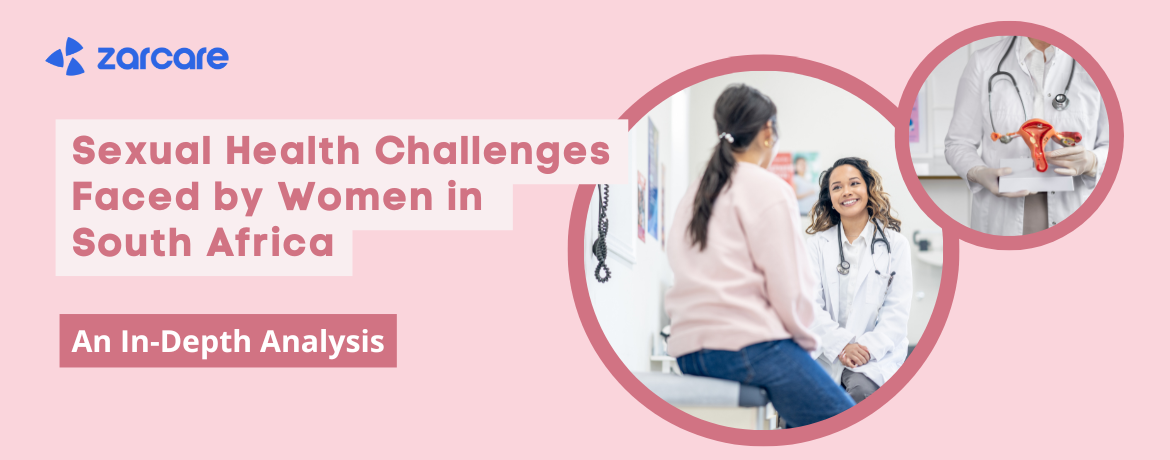Sexual Health Challenges Faced by Women in South Africa: An In-Depth Analysis

Sexual health is a crucial aspect of overall well-being, yet women in South Africa face numerous challenges in this domain. These challenges are multifaceted, encompassing socio-economic, cultural, and healthcare-related issues. This article delves into the primary sexual health challenges faced by women in South Africa and explores effective strategies to combat these issues. South Africa has one of the highest HIV prevalence rates in the world, with women being disproportionately affected. Young women, in particular, are at a higher risk due to factors such as gender-based violence, economic dependency, and limited access to sexual health education². Additionally, sexually transmitted infections (STIs) are prevalent, further complicating women’s sexual health. Implementing comprehensive sexual education programs in schools can equip young women with the knowledge to make informed decisions about their sexual health. Increasing access to healthcare services, including regular screenings and treatment for HIV and STIs, is essential. Mobile clinics and community health workers can play a significant role in reaching underserved areas. Empowering women through education and economic opportunities can reduce their vulnerability to HIV and STIs. Gender-based violence (GBV) is a pervasive issue in South Africa, with significant implications for women’s sexual health. GBV includes physical, sexual, and emotional abuse, often leading to unwanted pregnancies, HIV, and other STIs³. The trauma associated with GBV can also result in long-term psychological issues. Strengthening laws and policies to protect women from GBV and ensuring their effective implementation is crucial. Providing comprehensive support services, including counselling, legal aid, and safe shelters, can help survivors of GBV. Engaging communities in awareness campaigns and education programs can challenge and change harmful gender norms and behaviours. Access to contraception remains a significant challenge for many women in South Africa. Cultural and religious beliefs, coupled with a lack of education and healthcare infrastructure, contribute to high rates of unintended pregnancies¹. This issue is particularly acute in rural areas where healthcare services are often scarce. Educating women about the various contraceptive options available and their benefits can empower them to make informed choices. Strengthening healthcare infrastructure, particularly in rural areas, to ensure that contraceptives are readily available and accessible. Training community health workers to provide contraceptive services and education can bridge the gap in areas with limited healthcare facilities. Maternal health is a critical aspect of sexual health, yet many women in South Africa face significant challenges during pregnancy and childbirth. High rates of maternal mortality and morbidity are often due to inadequate healthcare services, poor nutrition, and lack of access to skilled birth attendants¹. Ensuring that all pregnant women have access to regular antenatal care can help identify and manage potential complications early. Increasing the number of skilled birth attendants and ensuring their presence during childbirth can significantly reduce maternal mortality rates. Implementing nutrition programs for pregnant women can improve maternal and infant health outcomes. Female genital schistosomiasis (FGS) is a neglected tropical disease that affects many women in rural South Africa. FGS can cause severe reproductive health issues, including infertility, and increases the risk of HIV infection². Raising awareness about FGS and its symptoms can lead to earlier diagnosis and treatment. Ensuring that effective treatment for schistosomiasis is available and accessible in affected areas. Implementing preventive measures, such as improving sanitation and access to clean water, can reduce the incidence of FGS. Cultural and societal barriers often hinder women’s access to sexual health services. Stigma, discrimination, and traditional gender roles can prevent women from seeking the care they need³. These barriers are particularly pronounced in rural and conservative communities. Engaging community leaders and influencers in promoting positive attitudes towards women’s sexual health can help break down cultural barriers. Implementing education programs that challenge harmful gender norms and promote gender equality. Establishing support networks for women can provide a safe space for them to discuss and address their sexual health concerns. The sexual health challenges faced by women in South Africa are complex and multifaceted, requiring a comprehensive and multi-pronged approach. By addressing the root causes of these challenges and implementing effective strategies, it is possible to improve the sexual health and overall well-being of women in South Africa. Empowering women through education, improving access to healthcare services, and challenging harmful cultural norms are essential to achieving this goal. ¹: [WHO African Region – Sexual and Reproductive Health Fact Sheet] ²: [Reproductive Health Problems in Rural South African Young Women] https://reproductive-health-journal.biomedcentral.com/articles/10.1186/s12978-018-0581-9 ³: [WHO Regional Office for Africa – Sexual and Reproductive Health] https://www.afro.who.int/health-topics/sexual-and-reproductive-health (1) Reproductive health problems in rural South African young women: risk behaviour and risk factors. https://reproductive-health-journal.biomedcentral.com/articles/10.1186/s12978-018-0581-9 (2) Sexual and Reproductive Health | WHO | Regional Office for Africa. https://www.afro.who.int/health-topics/sexual-and-reproductive-health (3) SEXUAL AND REPRODUCTIVE HEALTH FACT SHEET – Regional Office for Africa. (4) Reproductive health in Africa: major challenges and opportunities.1. High Rates of HIV and STIs
Combatting HIV and STIs
Comprehensive Sexual Education
Access to Healthcare Services
Empowerment Programs
2. Gender-Based Violence
Addressing Gender-Based Violence
Legal Reforms
Support Services
Community Engagement
3. Limited Access to Contraception
Improving Access to Contraception
Education and Awareness
Healthcare Infrastructure
Community Health Workers
4. Maternal Health Challenges
Enhancing Maternal Health
Antenatal Care
Skilled Birth Attendants
Nutrition Programs
5. Female Genital Schistosomiasis (FGS)
Combating FGS
Awareness Campaigns
Access to Treatment
Preventive Measures
6. Cultural and Societal Barriers
Overcoming Cultural and Societal Barriers
Community Engagement
Education Programs
Support Networks
Conclusion
Source:
